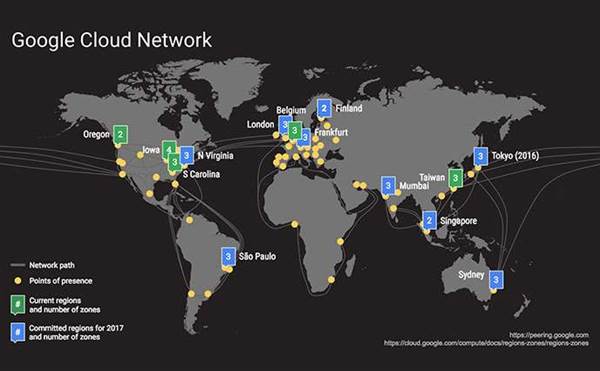But Google doesn't just want to compete in the "table stakes" of compute and storage, and Harshman pointed to analytics, machine learning and its Kubernetes container architecture as three differentiators.
Google spins up 2 billion containers every week, and has now "externalised our expertise in Kubernetes" to allow customers portability of workloads between cloud providers, helping avoid lock-in.
As Google ramps up its Australian presence, it will look to channel partners to span the suite of services, providing not only cloud migrations but also expertise around analytics and machine learning.
Migrations are one opportunity, said Harshman, but the real prize is further up the stack. "We have partners helping with the 'lift and shift' but also helping customers on their journey as they come out with new products they want to run on the cloud.
"We will not be successful if it is simply a lift and shift. When I speak to the C-suite, it is less about the technology and more about the transformational journey we will help them go on. What are the changes of the business now and in the future and how will cloud help them face those challenges."
Network performance is another Google differentiator, stressed Harshman. He said Google Compute Platform leans on the the company's existing network infrastructure to support its vast search and digital empire, which includes the world's leading search engine and video streaming behemoth YouTube.
"We own and operate the largest software-defined network in the world and and that includes a number of points of presence in Australia. That is a differentiator in Australian now, irrespective of us having a cloud in Australia. Our customers can take advantage of our networking link in Australia and onward to America and other regions.
"What we hear from customers is that when they test us against other providers – international or Australian – time and again they are blown away by the performance benefits of Google," he said.
Google recently launched an undersea cable connecting the west coast of the United States with Japan that will offer 60 terabits per second, and is also working with Facebook to build the Pacific Light Cable Network which will boast a capacity of 120 Tbps.
Harshman would not be drawn in the co-location strategy for Google Cloud Platform in Australia. Other hyperscale providers in Australia, namely AWS and Microsoft Azure, have been similarly cagey about their data centre providers.






_(21).jpg&h=142&w=230&c=1&s=1)

_(27).jpg&h=142&w=230&c=1&s=1)




.jpg&w=100&c=1&s=0)








_(1).jpg&q=95&h=298&w=480&c=1&s=1)


